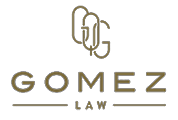Facing an HOA fine can feel overwhelming, especially when you believe the fine is unfair or excessive. As a homeowner in Florida, you have specific rights and legal options when your homeowners’ association imposes penalties that seem unjust. Understanding how to fight HOA fines effectively requires knowledge of Florida law, proper documentation, and strategic action.
At Gomez Law, we specialize in representing homeowners exclusively against their associations. Our experienced attorney, Eduardo Gomez, has successfully helped countless Florida homeowners challenge unfair HOA fines and protect their rights. With over 20 years of experience in complex litigation and a proven track record in HOA disputes, we’re here to guide you through fighting back against unjust association actions.
Stop letting your HOA ignore statutory procedures and overcharge you with invalid fines. Call Gomez Law, your trusted HOA lawyer in Miami, now to protect your rights and fight against association overreach.
Understanding HOA Fine Authority Under Florida Law
Before you can effectively fight HOA fines, understand what your association can and cannot do. Chapter 720 of the Florida Statutes requires that fines be imposed according to specific procedures that protect homeowners from arbitrary enforcement.
Your HOA can impose fines for violations of the association’s governing documents, including the Declaration of Covenants, Conditions & Restrictions (CC&Rs) and bylaws. However, this authority isn’t unlimited. By statute, the board must provide at least 14 days’ written notice of your right to a hearing. The hearing must occur within 90 days before an independent committee of at least three non-board, non-employee members (and not their close relatives). The notice must describe the violation and any required cure.
Key protections include: The fine cannot be imposed if the committee does not approve. If you cure before the hearing or as stated in the notice, the association may not impose the fine. Fines are generally capped at $100 per violation and $1,000 in the aggregate unless your documents say otherwise. Fines under $1,000 may not become a lien. Payment due dates must be at least 30 days after the committee’s written notice, and attorney’s fees cannot accrue before then.
Florida law requires that fines be imposed reasonably and consistently across the community. The HOA board cannot single out individual homeowners or impose penalties that violate statutory procedures.
Common Grounds for Challenging HOA Fines
Several legitimate reasons exist for challenging HOA fines, each requiring different defense strategies:
Procedural Violations by the Association
Many HOA fines are successfully challenged because the association failed to follow Florida Statute 720.305 procedures. Required steps include: 14-day written notice, a hearing within 90 days before an independent committee, a written decision within 7 days, and a payment date at least 30 days out. If any step is missed, the fine is invalid.
Architectural and Property Modification Disputes
Architectural violations are among the most frequently contested fines. These disputes often arise when homeowners make property improvements without proper approval or when the association’s architectural review process is flawed. Florida Statute 720.3035 limits enforcement over certain items not visible from the parcel’s frontage and restricts review of non-visible HVAC systems that are substantially similar to approved systems.
Lack of Evidence or Improper Investigation
Some fines are issued without sufficient evidence of an actual violation. The fine may be successfully challenged if the association cannot prove that a violation occurred or if their investigation was inadequate. Your notice must describe the alleged violation and any required cure.
Discriminatory Enforcement
When an association enforces rules selectively or treats homeowners differently based on personal relationships or bias, this creates grounds for challenging the fine. Florida courts recognize “selective enforcement” as a defense; restrictions must be enforced uniformly or not at all.
Your Statutory Rights as a Florida Homeowner
Understanding your rights forms the foundation for any successful challenge to association penalties:
Right to Statutory Notice and Hearing: You’re entitled to at least 14 days’ written notice of the right to a hearing, a hearing within 90 days, and a decision by an independent committee (not board members, employees, or their close relatives). The committee must provide written findings within 7 days.
Right to Legal Representation: You have the absolute right to retain an attorney to represent your interests in HOA disputes, though using an attorney is optional.
Right to Review Association Records: Florida Statute 720.303 requires HOAs to provide record access within 10 business days after a certified written request or face statutory damages of $50 per day (up to $500) and potential penalties for repeated violations.
Step-by-Step Guide: How to Fight HOA Fines Effectively
Step 1: Analyze the Fine Notice
Examine every detail of the fine notice for procedural errors, unclear violation descriptions, or missing information. Confirm the notice includes your right to a hearing, describes the violation and any cure, and provides at least 14 days before the hearing.
Step 2: Document Everything
Take photos of the alleged violation area, collect witness statements, and preserve all correspondence with the association. This evidence becomes vital if the dispute escalates to legal action.
Step 3: Review Governing Documents
Examine the association’s governing documents, including CC&Rs, bylaws, and enforcement policies. Look for inconsistencies between the alleged violation and actual rules, or evidence that the association failed to follow its procedures.
Step 4: Request the Required Committee Hearing
Formally request the mandatory committee hearing within your documents’ timeframes. By statute, you must receive at least 14 days’ written notice, and the hearing must be held within 90 days before an independent committee.
Step 5: Prepare Your Defense Strategy
Work with an experienced HOA attorney to develop a comprehensive defense. This may include challenging the association’s authority to impose the fine, demonstrating procedural violations, or proving that no actual violation occurred.
The Committee Hearing Process
The committee hearing represents your opportunity to present your case. Proper preparation makes the difference between success and failure.
Before the Hearing: Organize all documentation chronologically and prepare a clear, concise presentation focusing on facts rather than emotions. If you’ve retained an attorney, they can accompany you and present your case professionally.
During the Hearing: You may attend by phone or electronically. Present your evidence, call witnesses if necessary, and respond to committee questions. The hearing follows a structured format, but specific procedures vary between associations.
After the Hearing: The committee must issue written findings within 7 days. If it does not approve the fine, no penalty can be imposed. If approved despite valid challenges, consider legal action with an HOA attorney.
When Professional Legal Help Becomes Necessary
Certain circumstances make professional legal representation essential rather than optional:
Complex Legal Issues: Attorney expertise becomes invaluable when cases involve complex questions about association authority, procedural requirements, or interpretation of governing documents.
Pattern of Harassment: When associations target homeowners with repeated fines or enforce rules discriminatorily, this behavior may violate fair housing laws and require legal intervention.
Significant Financial Stakes: Substantial fines or potential liens on your property justify professional representation, as legal costs often pale compared to potential consequences.
Why Choose Gomez Law for Your HOA Dispute
At Gomez Law, we specialize in representing Florida homeowners exclusively against their associations. We never represent HOAs or management companies, which means no conflicts of interest and strategies designed solely to protect homeowners.
Contingency Fee Representation: We work completely on contingency; you pay no upfront fees and only pay when you win. While other HOA lawyers charge $300-500 per hour upfront, our model allows you to challenge your association without financial risk.
Proven Track Record: With over 20 years of experience in complex litigation, Eduardo Gomez has successfully represented homeowners in all types of association disputes, including improper fines, procedural violations, and discriminatory enforcement.
Bilingual Services: Eduardo Gomez is fluent in Spanish and proudly serves Miami’s Hispanic community with clear communication and trusted legal help.
“Mr. Gomez has been part of my legal team since 2018. I would highly recommend Mr. Gomez to anyone needing legal counsel.” – Frank T., Google Review
Understanding Florida’s Dispute Resolution Requirements
Before going to court, Florida Statute 720.311 requires specific dispute resolution procedures. Most covenant, records, and meeting disputes require pre-suit mediation. Election and recall disputes go to DBPR binding arbitration or court. Collections actions are excluded from pre-suit mediation.
Benefits of Mediation: This process allows both parties to work with a neutral third party to reach mutually acceptable resolutions. Mediation is typically faster and less expensive than litigation while allowing for creative solutions that courts cannot provide.
When Arbitration Applies: Election and recall disputes are handled through binding DBPR arbitration or court rather than pre-suit mediation. Other enforcement disputes typically require pre-suit conciliation first.
Avoiding Common Mistakes That Weaken Your Case
Many homeowners inadvertently harm their cases by making predictable mistakes:
Missing Deadlines: Association bylaws and Florida statutes establish specific timeframes for responses and appeals. Missing these deadlines can forfeit your right to challenge fines effectively.
Emotional Arguments: While HOA disputes can be emotionally charged, successful challenges focus on facts, procedures, and legal requirements rather than personal grievances.
Inadequate Documentation: Failing to document the alleged violation properly, correspondence with the association, or evidence supporting your position significantly weakens your case.
Proceeding Without Legal Advice: Many homeowners attempt to handle complex disputes alone, only to discover later that they missed critical legal issues or procedural requirements that an experienced attorney would have identified immediately.
The Cost of Not Fighting Back
Accepting unfair HOA fines without challenge creates consequences that extend far beyond the immediate penalty amount:
Precedent for Future Enforcement: Accepting unfair fines establishes precedent that may encourage additional penalties. Standing up to unfair treatment protects your interests and those of your neighbors.
Financial Escalation: Unpaid fines can escalate to liens on your property under Florida Statute 720.3085, affecting your ability to refinance or sell. While fines under $1,000 may not become liens, larger fines can create serious problems.
Community Impact: Unfair enforcement negatively impacts property values and creates tension within the community. Challenging inappropriate association behavior helps maintain fairness and preserves everyone’s investment.
Take Action Against Unfair HOA Fines
Don’t let unfair HOA practices go unchallenged. Your home represents your most significant investment, and you deserve to enjoy it without harassment or unfair treatment from your association.
Ready to fight back against unfair HOA fines? Contact Gomez Law today for your free consultation. We’ll review your case, explain your options, and help you determine the best course of action for your specific circumstances.
Contact Gomez Law at (305) 790-2601 or visit our Coral Gables office at 145 Almeria Avenue to schedule your consultation. We serve homeowners throughout Florida and only get paid when you win.

